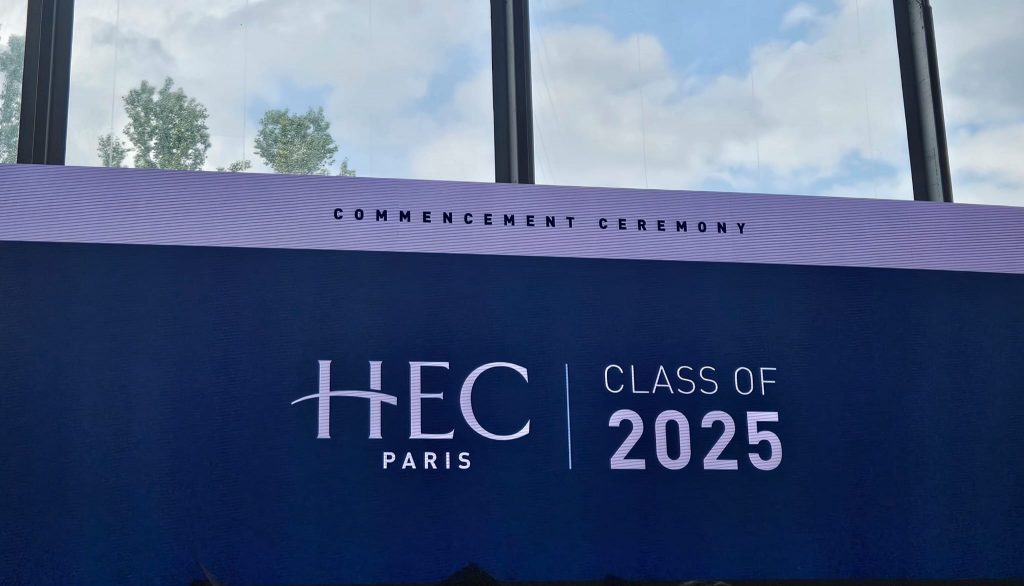As part of the 20-module journey within the HEC Executive MSc in Innovation and Entrepreneurship, the Fundamentals of Negotiation course stood out as one of the most transformative experiences of the program.
Led by Professor Mathis Schulte, this course went far beyond negotiation tactics. It challenged our assumptions, sharpened our thinking, and gave us the tools to navigate difficult conversations with clarity and confidence. It was a shift in mindset — not just a learning module.
Learning by Doing: From Concepts to Conversations
Rather than lectures and theory-heavy slides, we learned through doing. Each week, we stepped into real-world negotiation scenarios with structured roles, clear objectives, and sometimes, conflicting agendas. We negotiated via Zoom and email, with time limits and real pressure. Every conversation mattered — and every outcome was the result of our preparation, intuition, and adaptability.
These weren’t generic cases. They were rich, complex, and often uncomfortable — exactly like real life:
- In the Old Papeterie negotiation, I played an artist seeking to buy a small unit to build a photography darkroom. It taught me how anchoring, limited information, and hidden motivations shape outcomes even in low-stakes situations.
- In SyciTech vs. FroGen, we negotiated the acquisition of a biotech plant. This case introduced powerful concepts like the bargaining zone, BATNA, and anchoring — showing how data-driven preparation can lead to mutually beneficial deals.
- The Norsemen Investments case was emotionally intense. It placed us in a contractual dispute between a developer and a small business owner — involving power dynamics, financial pressure, and the real risk of bankruptcy. This scenario forced us to deal with escalation, face-saving, and interest-based resolution under stress.
- In the International Science Trust simulation, we negotiated multi-party funding allocations under strict email-only communication rules. It revealed the subtle complexities of coalition building, fairness norms (equity, equality, need-based), and the limits of written persuasion.
What I Learned (and Unlearned)
This course fundamentally changed the way I view negotiation — not as a contest of willpower or cleverness, but as a structured, human-centered process. Some key takeaways:
BATNA is your backbone: Knowing your best alternative is empowering. It keeps you from making poor concessions and gives you leverage — even in tough situations.
Make the first offer if you’re ready: Anchoring works. If you’re informed, take the lead. If not, listen and learn before making your move.
Multi-issue negotiations are about strategy, not compromise: We learned how to distinguish between distributive, compatible, and integrative issues — and how to use logrolling to create win-win outcomes.
Emotions and biases are negotiation traps: From confirmation bias to fundamental attribution error, the way we interpret behavior can sabotage deals. Recognizing and correcting for these biases was one of the most eye-opening lessons.
Not all deals are worth closing: Knowing when to walk away — especially in cases of a negative bargaining zone — is just as important as knowing how to push forward.
From Power Plays to Purposeful Dialogue
Perhaps the most impactful shift came from adopting the Interests–Rights–Power framework. Too often, we argue based on what’s “right” or try to push through using power. But the real breakthroughs happen when we start with interests — ours and theirs.
That’s when negotiation becomes not just a tool, but a relationship-building act. One that can unlock trust, creativity, and long-term value.
Gratitude and Looking Ahead
I’m incredibly grateful to Professor Mathis Schulte, whose guidance, feedback, and thoughtful debriefs brought these concepts to life with precision and impact.
This course didn’t just teach me how to negotiate. It made me more aware, more structured, and more strategic — as an entrepreneur, a collaborator, and a human being.
Some modules leave you with knowledge. This one left me with a skillset for life.




